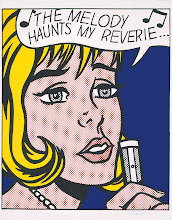Some points of departure that may potentially constitute an evaluation or a defense of Autumn in My Heart.
--- For all its over-the-top outbursts and tears, the show boasts a definite “rigor”, not to be mistaken for stylishness or old-school classicism, in its melodramatic construction. There are no unnecessary elements here, only elements (flashbacks, plot revelations, close-ups…) that will underscore as intensely as possible the heavy emotions within the story. So, for instance, it hardly matters that the production team gave very little thought to set design, since the show derives its emotional power not from the splendor of its sets but from Song Hye-Kyo’s tear-streaked face. The show’s vital force, its unique heartbeat, is formed from this obsessive concentration on only the certain elements it deems as essential in accumulating the feelings of the drama. Throughout the sixteen episodes, these concentrated feelings gather up like a storm, mapping out lines of force that collide, intersect, and repeat. Thus the show is structured around a series of dramatic encounters and confrontations, missed chances and unspoken desires, along with multiple repetitions of lines of dialogue, settings, gestures, and music cues. All these lines of force also possess an unchanging trajectory, which goes all the way to a devastating finality. No wonder in shows like these things only get worse. Calling this stuff heavy-handed is just too insubstantial!
--- Each of the main characters cannot love if not in a deranged state. This is in line with the show’s full-blown melodramatic trajectory, which requires the creation of characters that are willing, without hesitation, to go to the utmost extremes and plunge into the torments of romance. Subtlety and nuance in characterization have no home here, since these qualities are unable to jive with the drama’s emotional bounce and overriding purpose, specifically the relentless accumulation of feelings. Whether it’s Tae-seok’s unrequited, almost masochistic, love for Eun-suh, transforming him from bad boy to faithful mensch, or Yumi proclaiming to her fiancé Joon-suh that she’ll die without him, in the hopes of suborning him into a marriage he doesn’t want, the characters’ arrant amour fou arrives at a mad morality. The hysterical spirit of the romance overthrows the conventional and powerless principles of love that the older characters term as wisdom. None more so than in the romance between Joon-suh and Eun-suh is this expressed. The familial bond between the ex-siblings blooms into romance, much to the outrage of the other characters, but nevertheless their fragile love only flourishes more so once it is rendered as taboo. As Eun-suh quavers to Joon-suh, “Let’s just look at each other as if it’s a dream”, there is a moving realization that their love achieves in reality the affections of dreams. In that instant, love is reinvented.
--- Autumn in My Heart, through its love story, revitalizes the passé concept of innocence. Joon-suh and Eun-suh’s romantic relationship, throughout the entire show, never loses the brother-sister tenderness of their adolescence, given that these two lovers, to begin with, have yet to mature into adulthood. Whenever they encounter each other, the lovers “catch” their childhood once more, regaining their youthful liveliness. Indeed, the scenes with the couple candidly manifest the pep of puppy love: puerile, annoyingly sexless, yet wholly genuine. But this childlike innocence is too vulnerable to face the (melo)drama and too impulsive to avoid it. No matter the hostility and hardships, Joon-suh and Eun-suh, with tears streaming down their faces, defend their pure love, because this is the only portal to their lost childhood. In Jean Renoir’s The River, one of the characters says, “And the world is for children, the real world. They climb trees and roll in the grass. They’re close to the ants and as free as the birds. They’re like animals. They’re not ashamed. They know what is important.” Somewhat similarly, the romantic scenes between the two leads usually take place outdoors. However, these moments of innocence, when teenage hopes and dreams are recovered and which the adult world smashes into oblivion, comprise the instant when true love takes central importance and runs unashamed and free. Innocence is no longer the safety net for censorious puritans, but a force of love that can potentially turn the world upside down.
--- That ending, with the sudden refrain of an important line of dialogue, is possibly the most moving I’ve ever seen.
Recent Posts






0 comments:
Post a Comment